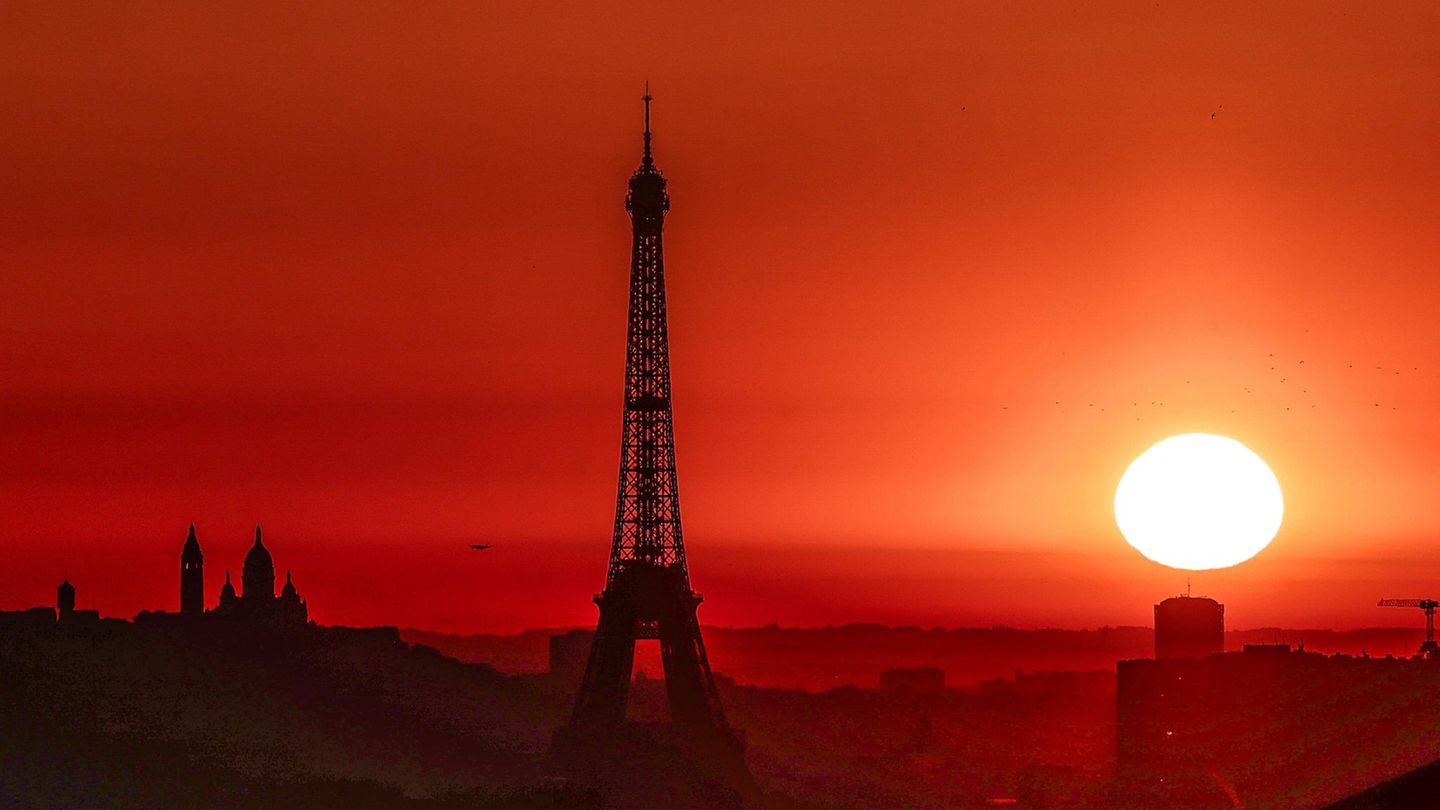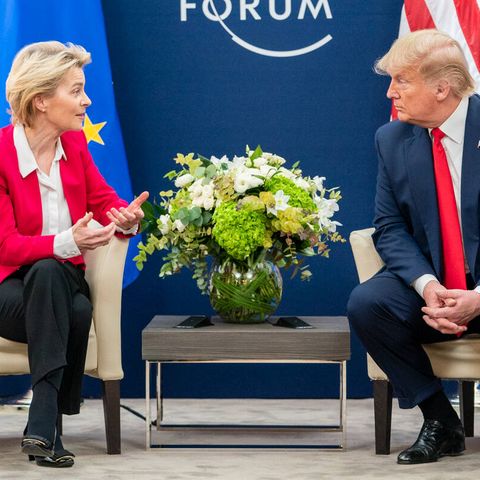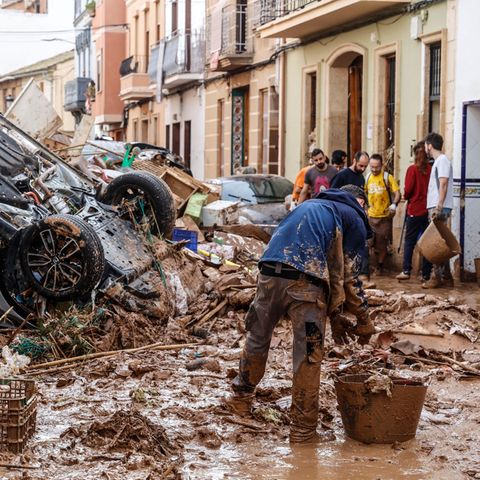analysis
Does the highest court have to save the world?
Copy the current link
Add to the memorial list
Climate change rages more and more violently – and the global community almost only watches. An expert opinion from the highest court could change that. Just how much would that bring?
Vanuatu is an island paradise: turquoise waves caress white sandy beaches, palm trees weigh themselves in the sun. No wonder that here, in the middle of the Pacific between Fiji, Salomon and New Zealand, the happiest people in the world should live. Or better: should have lived. Because according to a British study, it was almost twenty years ago.
The fact that happiness has now settled somewhere else should have a lot to do with a phenomenon that deals with the whole world, but so far only a few meets as hard as those island states in the Pacific: climate change.
Several villages of the Vanuatu archipelago have already had to be evacuated because the rising sea level salted their drinking water sources. Frequently occurring tropical storms destroy entire areas. Young people in particular are therefore drawn to the capital Port Vila. Before the consequences of global warming, it is clear, but you won’t be permanently safe there either. Further northeast of Tuvalu, half of the population has already applied to Visa for Australia because their homeland will no longer exist in the foreseeable future.
If climate change becomes a case for the court
Because the situation in the region has been worried for years, a group of students started a campaign to protect their homeland in 2019. Vanuatus government then brought in a resolution at the United Nations General Assembly – which in turn passed the request to the highest court, the International Court of Justice in the Hague (IGH). There the judges should decide on the fate of the planet.
“We are at the forefront of a crisis that we have not caused, a crisis that threatens our existence and existence of many other people,” said Vanuatus Foreign Minister and Climate Commissioner, Ralph Regenvanu, before the IGH in December 2024. At that time, almost 100 countries and a dozen organizers took part. Over half a year later, the judges present their legal opinion, which is considered pioneering before publication. Because it could assess climate damage as a violation of international law and thus redefine the legal obligations in climate protection. The European and international lawyer Thomas Burri from the University of St. Gallen speaks of the “largest legal proceedings in the history of international law”.
The report is not considered legally binding, but it could be clarified for the first time which international law obligations have states in climate protection. There has never been such a judicial decision and should serve as the basis for decisions in future climate complaints. “The states are also expected to be based on the expert opinion; an authoritative determination of the IGH in an expert opinion can hardly escape states in the long run without paying a certain price,” Burri is certain.
Courts recently made comparable arrangements in Hamburg and on Costa Rica: The International Seegrichtshof found that states had to drastically reduce their emissions to protect the oceans. The Inter -American Court of Human Rights asked countries to actively act against climate information and to monitor and regulate the emissions of companies strictly.
Everyone does what they want in climate protection
World politics show how urgently such judicial sayings are every day: 195 countries have stipulated their way towards climate neutrality at the Paris Summit 2015, but legal consequences do not have the decisions of the cops. Even ten years after the pioneering agreement of Paris, climate protection measures and investments are subject to political moods and business situations.
One of the largest issuers simply erades climate change: U.S. President Donald Trump not only led the United States from the Paris climate agreement for the second time, but also completes environmental requirements, cuts the climate handle from all official documents, stops relief payments, ends scientific and meteorological programs.
In Europe, which has previously been staged as a pioneer, climate -skeptical tendencies are growing. For example, France’s Prime Minister Emmanuel Macron questioned the climate goals, while Germany’s Chancellor Friedrich Merz Kleinen the role of the Federal Republic of Climate Change, his government shortened the budget for the decarbonization of the industry and instead grabs fossil fuels.
All EU members are currently likely to-with the exception of Finland and Sweden. The EU Commission recently announced that-compared to 1990-it would like to reduce its emissions by 90 percent by 2040. The decision is particularly criticized by environmental associations because countries can compensate for part of their emissions-140 million tons-with climate protection projects in other countries and acquire so-called CO2 certificates. The Federal Environment Agency rated this emission trade as a success, but it is undisputed that the benefits of numerous reforestation projects in the global south are rarely given.
What the IGH could do – and what not
Countries like Vanuatu now hope that climate offenders will be fully accounted for by the report from Haag. The main driver of global warming could be obliged to drastically lower their emissions – “regardless of membership in the Paris climate agreement,” emphasizes international lawyer Burri. About 80 percent of the participants in the procedure would actively support this step, ten percent would have spoken out against it. The rest were ambiguous.
However, it is unlikely that the IGH orders the immediate stop of all emissions because such a claim cannot currently be implemented.
A judicial decision on possible consequences for issuers, such as reparation payments, would be more pioneering. Even if the global emissions were sinking rapidly from now on, the consequences of global warming could not be stopped in the long run. Vulnerable and poor countries in particular are still affected by extreme weather events, the damage of which they could hardly pay.
A similar debate also dominated the last climate conference in Baku, but there was no concrete result – much to the disappointment of developing countries. Climate protection was considered weakened after the international meeting. The judges’ decision could strengthen him again and shorten the financial debates at the upcoming Cop30 climate conference in Brazil.
But the IGH is not an almighty organ: the members of the UN Security Council decide whether its decisions are also implemented. Anyone who does not recognize the court, do not agree to complaints and decisions, for example Israel or Russia, who deliberately ignores the IGH.
As long as the authority of the world court is not fully recognized by all heads of state, the IGH report should not stop climate change in the long run.
Source: Stern
I have been working in the news industry for over 6 years, first as a reporter and now as an editor. I have covered politics extensively, and my work has appeared in major newspapers and online news outlets around the world. In addition to my writing, I also contribute regularly to 24 Hours World.








